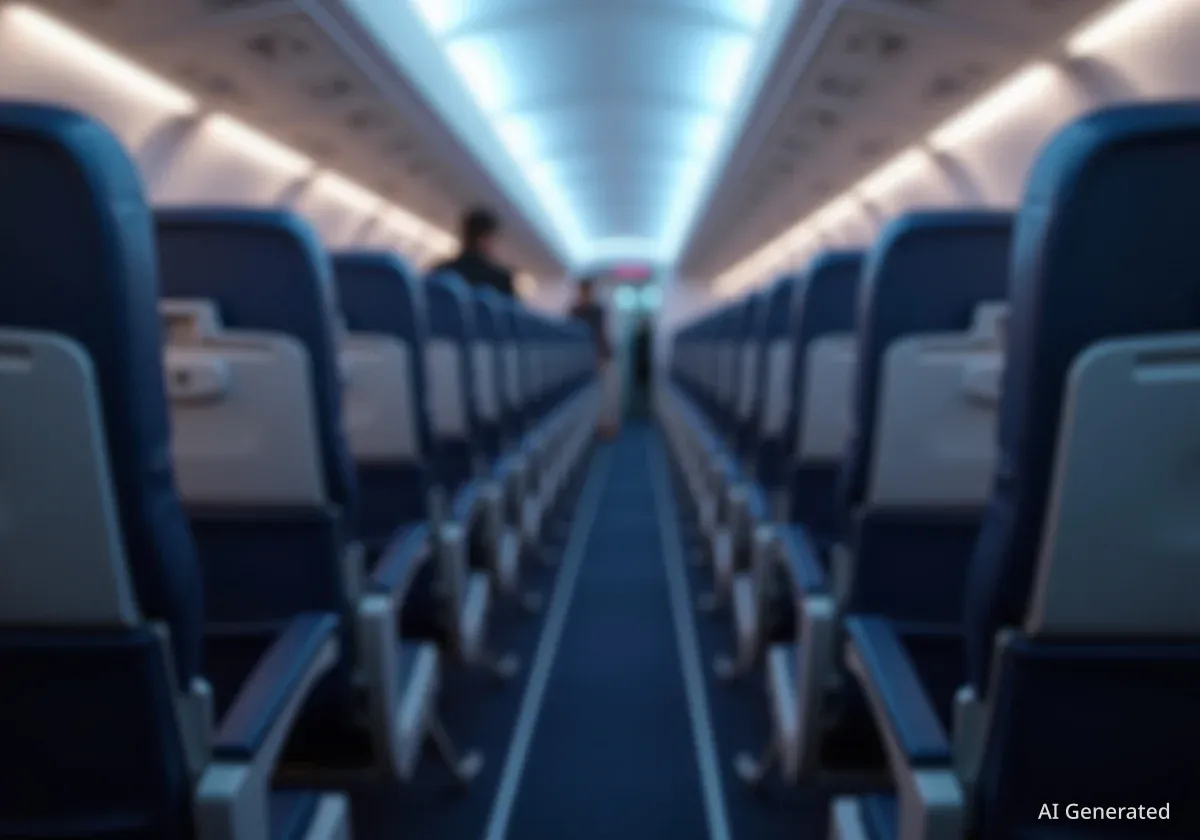WestJet announced a significant change to its Economy class cabins. The airline will introduce fixed-recline seats across its Boeing 737 fleet. This means passengers in Economy will no longer be able to lean their seats back. This move is part of a larger cabin reconfiguration aimed at adding more seats and offering new fare options.
Key Takeaways
- WestJet's Economy class will feature fixed-recline seats.
- The change allows for an additional row of seating on Boeing 737s.
- A new 'extended comfort' section will offer reclining seats and extra legroom.
- Cabin upgrades also include new in-flight Wi-Fi systems.
- The airline recently increased checked bag fees.
New Seating Configuration in Economy Class
WestJet's decision to implement fixed-recline seats in its Economy class affects all passengers in this cabin. Fixed recline means the seatbacks cannot be moved backward. This change is designed to create more space within the aircraft cabin.
The airline stated that the new ultra-slim-line seats contribute to this space increase. This design choice has allowed WestJet to add an extra row of seating to its Boeing 737 aircraft. The goal is to optimize cabin capacity.
Fact Check
- Fixed Recline: Seats that do not lean back.
- Aircraft Affected: WestJet's Boeing 737 fleet.
- Space Gain: Enough for one additional row of seats.
Introducing 'Extended Comfort' and Premium Options
For passengers who prefer the ability to recline, WestJet is offering alternative seating options. The airline is creating a new 'extended comfort' section within the Economy cabin. This section will be located directly behind the Premium cabin.
The 'extended comfort' section will feature 36 reclining seats. These seats will also provide additional legroom. This new offering aims to cater to travelers willing to pay more for increased personal space and comfort during their flight.
The Premium cabin will also receive upgrades. These changes are part of a broad cabin refresh initiative. All new cabins are expected to be fully implemented by the end of the current year.
"WestJet has always been a pioneer in making air travel available to Canadians, largely through keeping costs low to offer affordable airfares," said Samantha Taylor, WestJet executive vice president. "The layout for our refreshed cabin caters to our guests' diverse preferences. Whether they opt for Premium seating with extra amenities and legroom or for more affordable ticket prices with less space, we're excited to introduce this range of products for our guests to enjoy."
Technology Upgrades and Fare Strategy
Beyond seating, the cabin reconfiguration includes technological enhancements. Both the Economy and Premium cabins will be fitted with new Wi-Fi systems. This upgrade aims to improve the in-flight connectivity experience for passengers.
WestJet indicated that the addition of extra seats is intended to reduce the cost per seat. The airline suggests this could help provide more affordable fares. However, other recent decisions by the Canadian carrier present a different picture regarding ticket pricing.
Industry Context
Airlines often adjust cabin configurations to balance passenger comfort with operational efficiency and revenue generation. The trend towards denser seating arrangements is common among carriers seeking to maximize capacity and offer varied pricing tiers.
Rising Fees and Industry Trends
According to CBC News, WestJet recently increased its fee for the first checked bag. This marks the second fee hike in two years for the airline. While overall airfare has seen a decline since last year, carriers are increasingly recovering revenue through additional charges for services and amenities.
This strategy reflects a broader trend in the commercial airline industry. Low-cost airline models are facing financial challenges. For example, Spirit Airlines has experienced multiple bankruptcies, and United Airlines CEO Scott Kirby has publicly stated his belief that Spirit may cease operations.
Even traditionally low-cost carriers are adapting their models. Southwest Airlines, known for its no-bag-fee policy and open seating, has introduced bag fees and assigned seating options. These changes suggest a shift in how airlines are managing costs and generating revenue, impacting the overall passenger experience.
The commercial air travel landscape is evolving. Many industry observers note that these changes may not lead to better conditions for passengers in terms of comfort or overall cost, despite claims of offering more affordable ticket prices.





